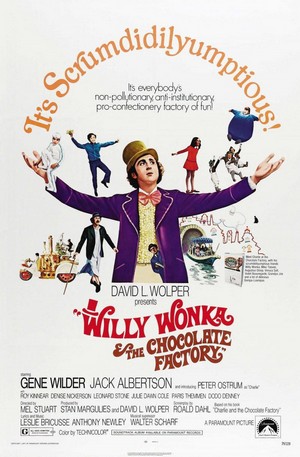
Willy Wonka & the Chocolate Factory (1971)
Sjakie & de Chocoladefabriek

Raiting: ![]() 7,9 /10
7,9 /10
Genre: Family
Director: Mel Stuart
Stars: Gene Wilder, Jack Albertson and Peter Ostrum
Country: United States
Release date: 29 June 1971
Length: 100 minutes


Raiting: ![]() 7,9 /10
7,9 /10
Genre: Family
Director: Mel Stuart
Stars: Gene Wilder, Jack Albertson and Peter Ostrum
Country: United States
Release date: 29 June 1971
Length: 100 minutes